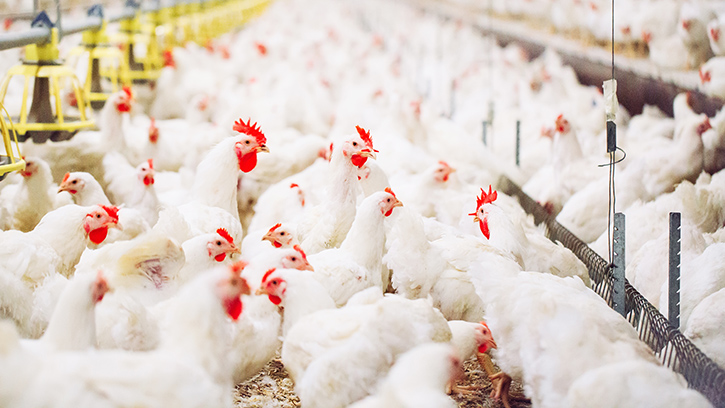Confirmation of Avian Influenza in a Worcestershire wild bird rescue centre near Droitwich Spa, Wychavon, puts additional pressure on the shoulders of British poultry meat producers, who are already working tirelessly to mitigate labour and Brexit challenges.
A 3km Protection Zone and 10km Surveillance Zone has been put in place around the infected premises, after UK Chief Veterinary Officer Christine Middlemiss confirmed the presence of the highly pathogenic H5N1 strain. All the birds on the premises have been humanely culled.
The risk to human health remains low, said the UK Health Security Agency, and poses a negligible risk to food safety, according to the Food Standards Agency.
Richard Griffiths, chief executive of the British Poultry Council, said: “Immediate action has been taken to stop the spread of disease and we continue to work closely with Defra and the Animal and Plant Health Agency to ensure full vigilance on all poultry sites to minimise the risk to the national flock, EU and international trade and mitigate any impact of our national food security.
“Bird flu has been identified earlier in the season than in previous years so we advise all poultry keepers, including hobby/pet keepers, to monitor their birds for any signs of disease. Assess all buildings for leaky roofs or access for unwanted vermin and wild birds, keep boots and equipment clean and disinfected, and restrict access to open water. Excellent biosecurity must be practiced at all times.”
Mr Griffiths added: “Whilst minimising the risk of disease outbreak is paramount all year round, those producing for the Christmas market will have a great deal of investment in a healthy flock at this time of year. Amidst other challenges facing the sector, the last thing we need is another bad winter of Avian Influenza.”
- The risk of incursion of highly pathogenic Avian Influenza (HPAI) H5 in wild birds has increased from low (event is rare but does occur) to medium (event occurs regularly) for wild birds.
- The risk of poultry and captive bird exposure to HPAI H5 across Great Britain remains low (with medium uncertainty) where biosecurity is sub-optimal, and low (with low uncertainty) where stringent biosecurity measures are applied.
Biosecurity and farm management
Biosecurity measures are not just a set of rules. They are part of the culture of keeping birds –effective and practical measures all poultry keepers must take to reduce the likelihood of getting an incursion of disease and prevent becoming a tracing or dangerous contact.
The Poultry Health and Welfare Group, previously chaired by BPC technical director Maire Burnett, hosted its annual Autumnal webinar to promote awareness of Avian Influenza and the risk it poses to the domestic wild bird population, encouraging bird keepers to step up their biosecurity practices ahead of the winter season.


